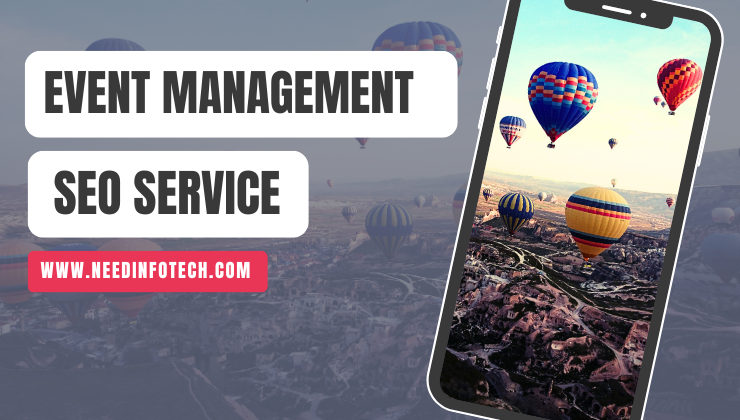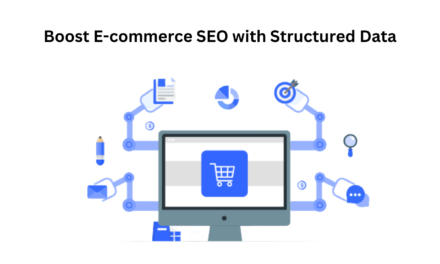Introduction
In today’s digital age, having a strong online presence is crucial for businesses in the event management industry. Whether you are a wedding planner, catering service, florist, professional photographer, limousine provider, or DJ service, implementing effective SEO strategies can help you reach your target audience and outrank competitors. In this article, we will explore the world of event management SEO and provide valuable insights and tips to enhance your online visibility and attract more clients.
1. Understanding the Importance of Event Management SEO For Businesses
In a highly competitive industry like event management, standing out from the crowd is essential. Potential clients often turn to search engines like Google to find services and vendors for their special occasions. By optimizing your website for search engines, you can increase your visibility and make it easier for potential customers to discover your business. SEO (Search Engine Optimization) is the process of improving your website’s visibility and ranking in search engine results pages (SERPs).
2. Conducting Keyword Research for Event Management Services
Effective SEO starts with thorough keyword research. Keywords are the terms or phrases that users enter into search engines when looking for specific information or services. As an event management business, you need to identify the keywords that your target audience is using to search for services related to weddings, catering, floral arrangements, photography, limousine rentals, and DJ services.
Tools like Google Keyword Planner, SEMrush, or Moz Keyword Explorer can help you find relevant keywords. Look for keywords with a good search volume and moderate competition. Consider both short-tail and long-tail keywords to target different user search intents.3. On-Page Optimization Techniques
a. Title Tag Optimization
The title tag is one of the most important on-page SEO elements. Craft a compelling and keyword-rich title for each page of your website, including the focus keywords at the beginning. Keep the title tag within 60 characters to ensure it displays properly in search results.
b. Meta Description Optimization
The meta description is a brief summary of the page’s content that appears in search engine results. Write an engaging meta description that includes your focus keywords. Aim to keep it within 155 characters to ensure it doesn’t get cut off. This is your opportunity to entice users to click on your link, so make it persuasive.
c. Heading Tags (H1, H2, H3, and H4)
Use heading tags to structure your content and provide hierarchy. The H1 tag should be reserved for the main heading on each page and should include your focus keywords. Use H2, H3, and H4 tags for subheadings and break down the content into easily digestible sections.
4. Creating High-Quality Content
When it comes to SEO, content is king. Creating valuable and engaging content is crucial for attracting both search engines and users. Craft well-written paragraphs that are rich in detail and provide useful information to the reader. Incorporate relevant keywords naturally within the content, ensuring it flows smoothly and doesn’t feel forced.
Consider the perplexity and burstiness of your content. Intrigue your readers with surprising facts, thought-provoking questions, or interesting anecdotes related to event management. Use a conversational style with a personal touch, addressing the reader as “you” and utilizing personal pronouns. Keep the tone informal yet professional, making the reader feel engaged and understood.
5. Optimizing Images
Images play a vital role in event management websites. They can showcase your work, evoke emotions, and enhance the overall user experience. When adding images to your website, ensure they are optimized for SEO. Use descriptive file names for your images, incorporating relevant keywords. For example, instead of “IMG_12345.jpg,” use “wedding-flower-arrangement.jpg” for a florist’s website. Additionally, provide alt text for each image. Alt text is a brief description that helps search engines understand what the image is about. Use descriptive alt text that accurately represents the contents, mood, or theme of the article. Including your focus keywords in alt text can also improve your Event Management SEO.

Conclusion
In the competitive industry, implementing effective Event Management SEO strategies is vital to gaining a competitive edge. By understanding the importance of SEO, conducting thorough keyword research, optimizing on-page elements, creating high-quality content, and optimizing images, you can enhance your online visibility, outrank competitors, and attract more clients to your wedding planning, catering, floral, photography, limousine, or DJ services.
FAQs (Frequently Asked Questions)
1. How long does it take to see results from event management SEO?
The time it takes to see SEO results can vary depending on various factors such as the competitiveness of your industry, the quality of your SEO efforts, and the age of your website. Generally, it takes several months to start seeing noticeable improvements in your search engine rankings and organic traffic. Patience and consistent SEO practices are key.
2. Can I do SEO for my event management website on my own, or should I hire a professional?
You can certainly implement SEO strategies for your event management website on your own. However, SEO is a complex and ever-changing field, so hiring a professional SEO agency or consultant can provide you with expert guidance and ensure optimal results. They have the knowledge and experience to navigate the intricacies of SEO and keep up with the latest trends and algorithm updates.
3. Are backlinks important for Event Management SEO?
Yes, backlinks play a crucial role in SEO. Backlinks are links from other websites that point to your website. Search engines consider backlinks as a vote of confidence in your content. When reputable and relevant websites link to your event management website, it can positively impact your search engine rankings. Focus on building high-quality backlinks from authoritative sources within the event industry.
4. How often should I update my event management website’s content?
Regularly updating your website’s content can signal to search engines that your site is active and relevant. Aim to add fresh and valuable content to your event management website on a consistent basis. This can include blog posts, client testimonials, portfolio updates, or industry news. However, prioritize quality over quantity. It’s better to have fewer high-quality updates than frequent low-quality updates.
5. Can social media help with Event Management SEO?
While social media signals are not direct ranking factors, a strong social media presence can indirectly impact your SEO efforts. Social media can help increase brand visibility, drive traffic to your website, and attract potential clients. Additionally, social media profiles often rank well in search engine results. Engage with your audience on social media platforms and share valuable content to enhance your event management SEO efforts.





